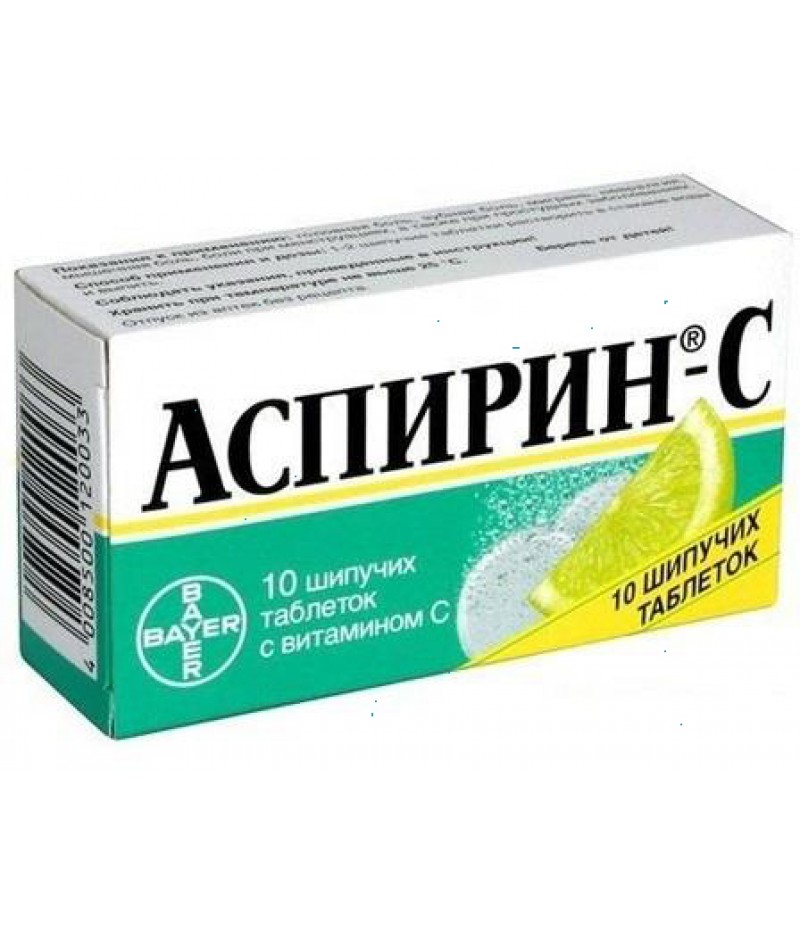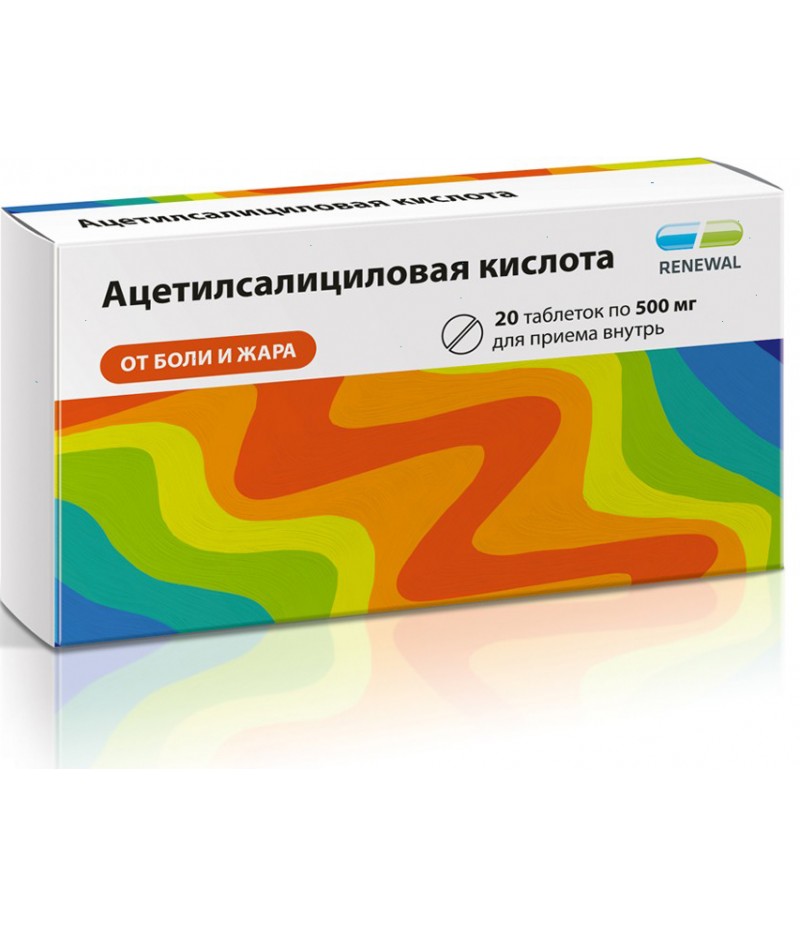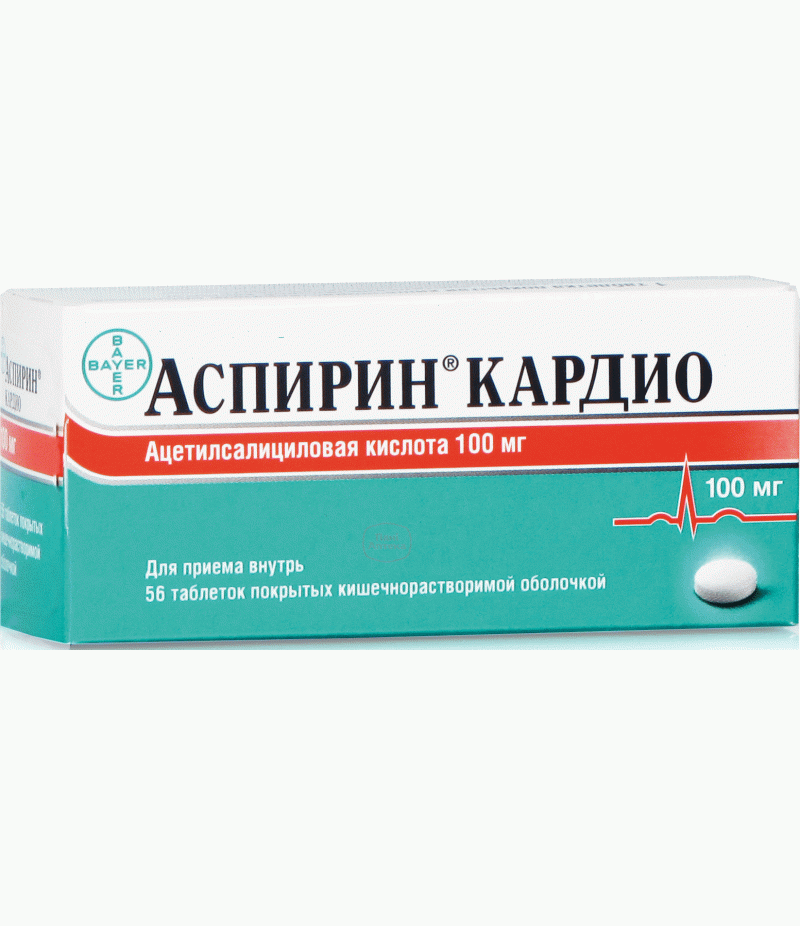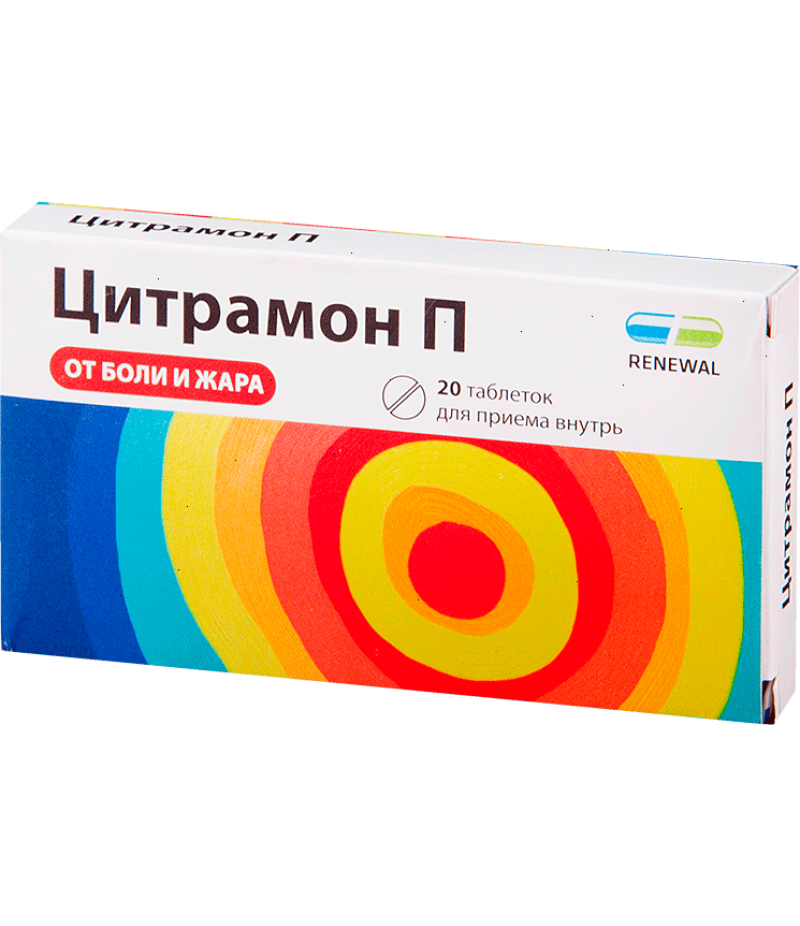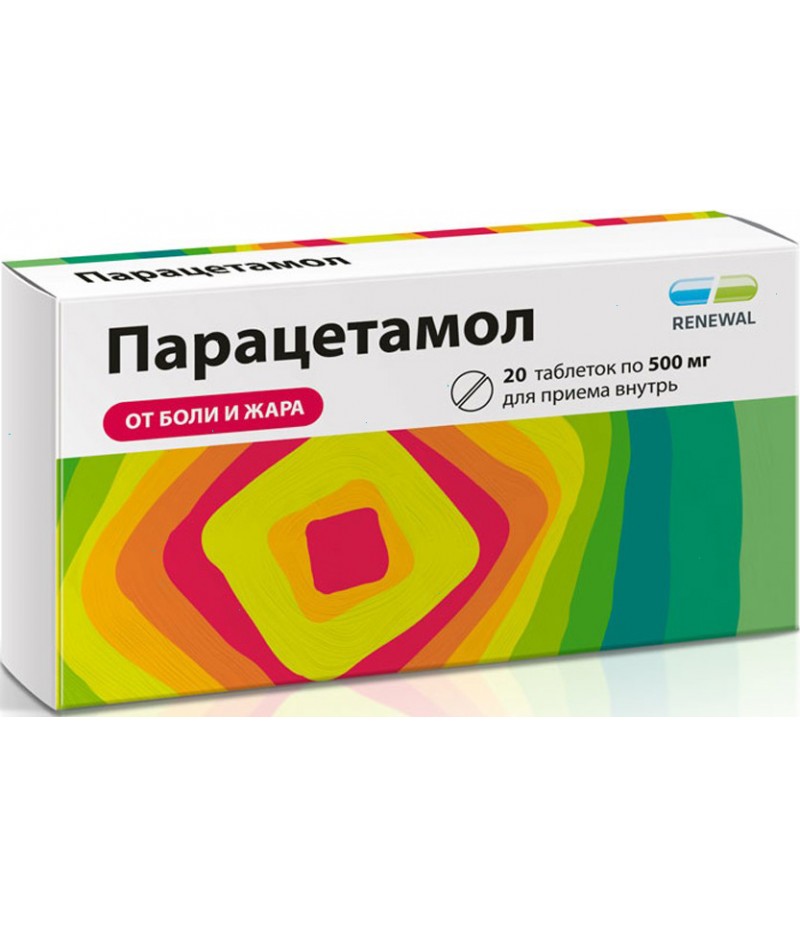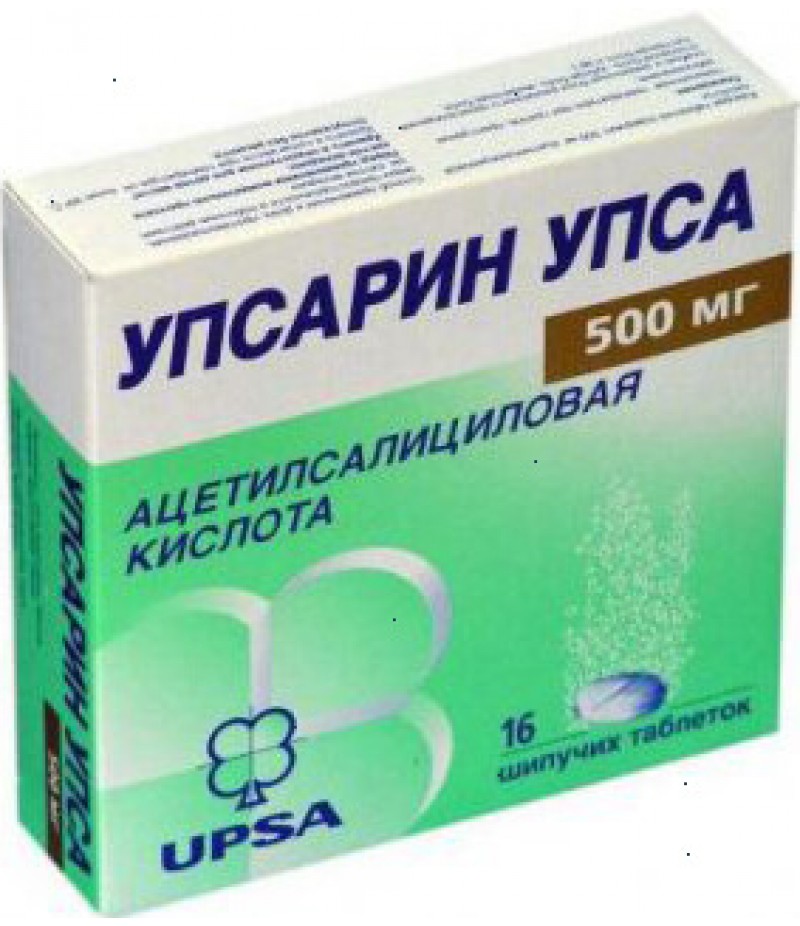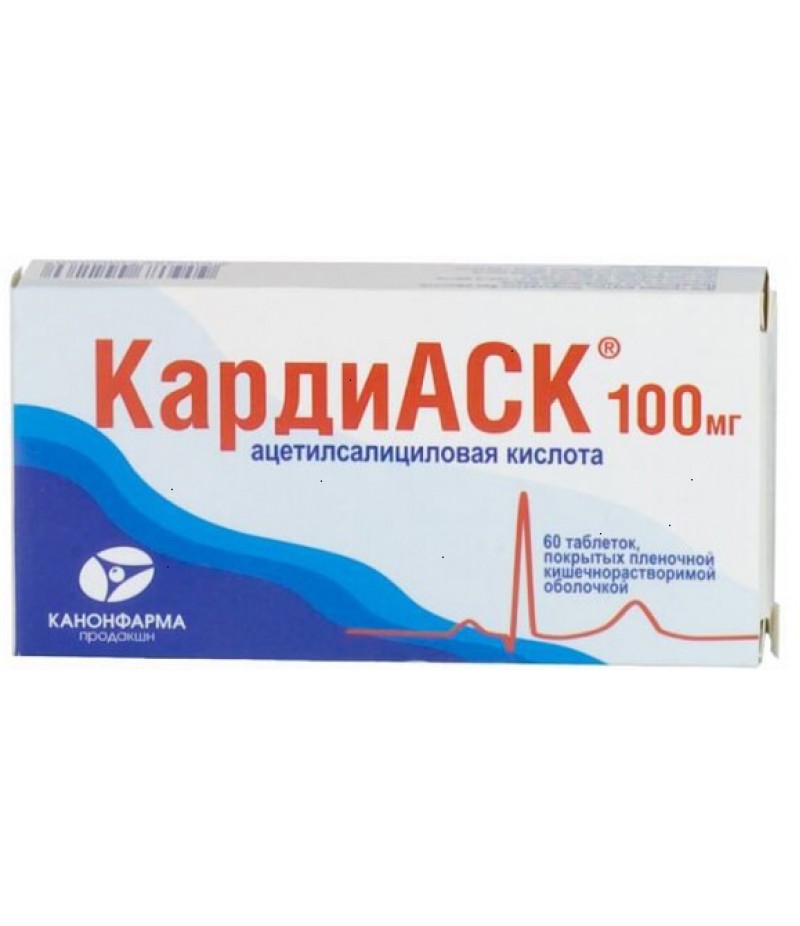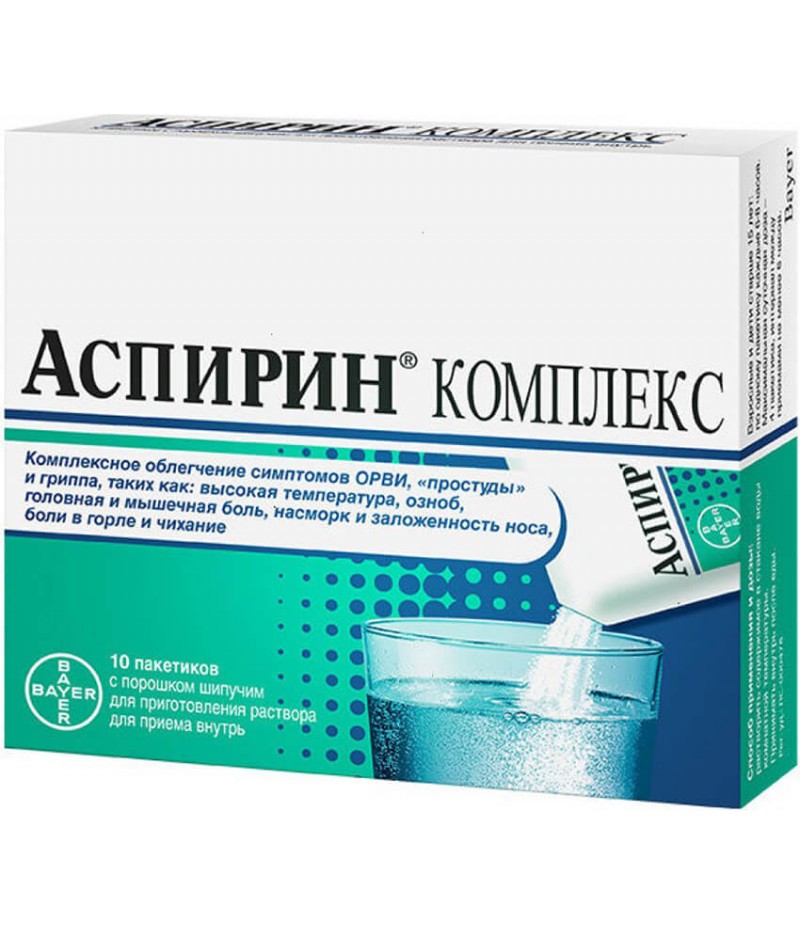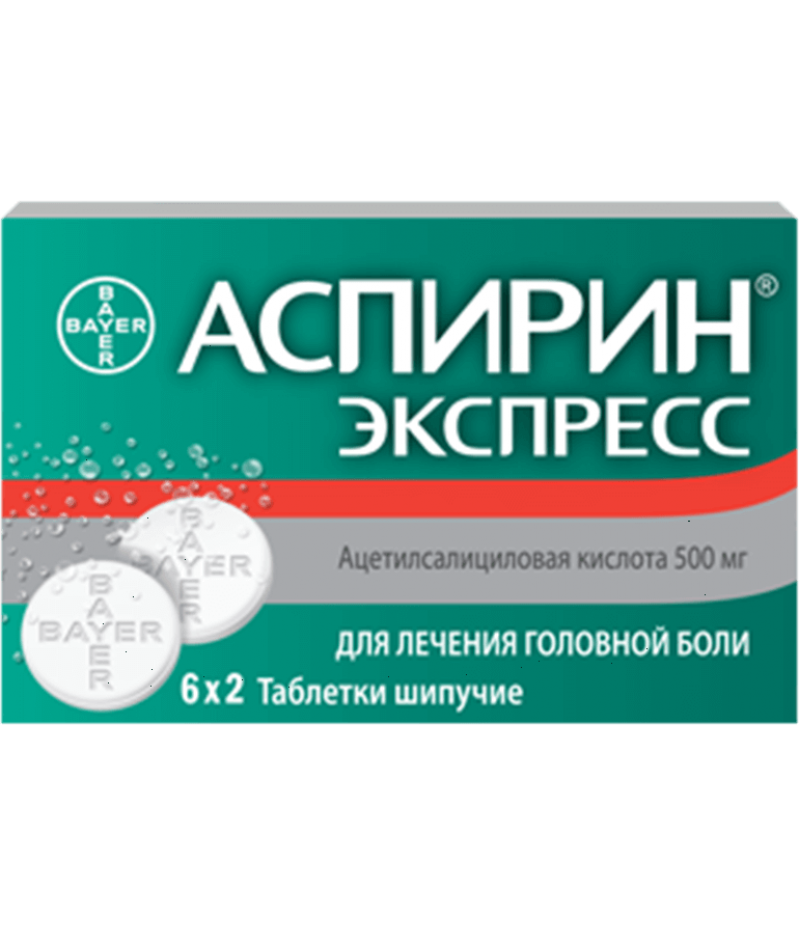Aspirin-C #10
- $13.70
- 3 or more $12.90
- Availability:In Stock
Aspirin-C instruction for useYou can buy Aspirin-C on this pageComposition1 tablet medication Aspirin-C includes 400 mg of acetylsalicylic acid (aspirin) and 240 mg of ascorbic acid (vitamin C).In addition: sodium citrate, citric ..
Aspirin-C instruction for use
You can buy Aspirin-C on this page
Composition
1 tablet medication Aspirin-C includes 400 mg of acetylsalicylic acid (aspirin) and 240 mg of ascorbic acid (vitamin C).
In addition: sodium citrate, citric acid, sodium hydrogen carbonate, sodium carbonate.
Form of issue
Aspirin-C is made in the form of effervescent (water-soluble) tablets, 10 pieces per pack (5 strips of 2 tablets).
pharmachologic effect
Anti-inflammatory, corrective processes of oxidation-reduction reactions, analgesic, increasing the general resistance of the body, antipyretic.
Pharmacodynamics and pharmacokinetics
Aspirin-C is a combined remedy from the group of NSAIDs, the effectiveness of which with regard to the symptoms of inflammatory, viral and other diseases, is due to the action of the active ingredients included in the composition of effervescent tablets.
Aspirin (acetylsalicylic acid) is characterized by an analgesic, anti-inflammatory and antipyretic effect, which is made possible by the ability of this substance to inhibit COX-1 and COX-2, isoenzymes regulating the production of prostaglandins. Aspirin also has a retarding effect, aimed at aggregation of platelets.
Vitamin C (ascorbic acid) is the most important substance involved in carbohydrate metabolism, redox reactions, tissue regeneration processes and blood clotting, and also increases the overall resistance of the human body to various external painful stimuli.
Indications for use
Effervescent Aspirin-C is indicated for use when:
weak or moderately expressed manifestations of pain syndrome in adults, arising for various reasons (dental, muscular and headache, neuralgia, migraine, menstrual pains, etc.);
increased body temperature, developed due to catarrhal, viral and other morbid conditions of infectious and inflammatory etiology (in patients older than 15 years).
Contraindications
The use of Aspirin-C is absolutely contraindicated when:
hemophilia;
exacerbations of erosive and ulcerative gastrointestinal pathologies;
hemorrhagic diathesis;
pregnancy (in I and III trimester);
bleeding from the gastrointestinal tract;
thrombocytopenia;
bronchial asthma, developed with the previous intake of any drugs from the NSAID group, in combination with nasal polyps;
breastfeeding;
parallel to taking Methotrexate in weekly dosages of 15 mg and above;
high personal sensitivity to the ingredients of tablets;
expressed pathologies of the liver / kidney;
insufficiency of glucose-6-phosphate dehydrogenase;
under the age of 15 years.
The use of Aspirin-C with extreme caution is allowed when:
concurrent treatment with anticoagulants;
hypovitaminosis K;
gout;
anemia;
peptic ulcer of the gastrointestinal tract (in the anamnesis);
hypoprothrombinemia;
erosive gastritis;
thyrotoxicosis;
propensity to bleed from the gastrointestinal tract;
painful conditions leading to fluid retention (including cardiac function and arterial hypertension).
Side effects
Allergic manifestations:
the formation of bronchospasm;
skin rashes;
anaphylactic reactions;
development of Quincke's edema.
Gastrointestinal system:
abdominal pain;
nausea, vomiting;
occurrence of erosions or GI symptoms (up to perforation);
obvious (vomiting of blood, black stools) or veiled symptomatology of bleeding from the gastrointestinal tract, which can cause the development of iron deficiency anemia;
violations of hepatic function (increased level of liver transaminases).
The system of hematopoiesis:
thrombocytopenia;
hemorrhagic syndrome.
Nervous system:
noise in ears;
feeling dizzy.
Urinary system:
hyperoxaluria;
formation of oxalate stones;
disorder glomerular renal apparatus.
Aspirin-C, instructions for use
Proper reception of effervescent tablets Aspirin-C assumes their preliminary dilution in a glass (150-200 ml) of water until complete dissolution, after which the mixture should be taken as soon as possible orally (drink).
Instructions for the use of effervescent aspirin recommends in the presence of febrile conditions and / or pain syndrome of mild / moderate intensity one-time take 1-2 dissolved tablets. Maximum at a time you can drink 2 tablets, for 24 hours - 6 tablets. The minimum break between doses should be 4 hours.
Duration of Aspirin-C treatment, without any other prior appointment of a physician, should be limited to 7 days, with the use of the medication as an anesthetic, and 3 days, when used as an antipyretic medicine.
Overdose
In the case of non-compliance with the recommended dosage regimen and the intake of inflated doses of Aspirin-C, negative symptoms associated with an overdose of the active ingredients of the drug may occur. The initial intoxication stage of overdose is characterized by dizziness, CNS excitement, severe headache, hearing and visual impairment, increased breathing, nausea / vomiting. In the following can be observed: drowsiness, respiratory failure, oppression of consciousness, anuria, convulsions, development of coma, disturbance of water-electrolyte balance.
To treat the treatment of such painful conditions is recommended in specialized medical departments. At the first manifestations of intoxication in the patient, it is necessary to induce vomiting and cleanse the gastrointestinal tract in order to limit the further absorption of the active ingredients of the preparation. In the future, the patient is prescribed the intake of sorbents, laxatives and associated supportive therapy.
Interaction
The combination of Aspirin-C with other NSAIDs, opioid analgesics, indirect anticoagulants, oral hypoglycemic agents, thrombolytic agents, sulfonamides (including Co-trimoxazole), platelet aggregation inhibitors, Reserpine, Heparin and Triiodothyronine increases their effects, and also increases the toxicity of Methotrexate .
Parallel use of glucocorticoids and ethanol-containing medications increases the damaging effect of Aspirin-C against the mucous membranes of the digestive tract and increases the possibility of bleeding from them.
Taking Aspirin-C reduces the effectiveness of uricosuric medicines (sulfinpyrazone, benzbromarone), diuretics (Furosemide, Spironolactone) and antihypertensive drugs.
When co-administered with lithium drugs, barbiturates and digoxin, an increase in their plasma concentrations is monitored.
Simultaneous reception of ascorbic acid and iron preparations improves intestinal absorption of the latter.
Antacid medications based on aluminum and / or magnesium inhibit and reduce the absorption of aspirin.
Terms of sale
Aspirin-C is supplied to pharmacies as an over-the-counter medication.
Storage conditions
The maximum temperature index of the storage of effervescent tablets is 25 ° C.
Shelf life
Since the production of the dosage form - 3 years.
special instructions
Aspirin-C as an antipyretic agent is not intended for treatment of children under the age of 15 with diagnosed respiratory illnesses caused by exposure to viral infections, due to the high risk of developing Reye's syndrome. The symptomatology of this syndrome is manifested by the development of encephalopathy with acute fatty liver dystrophy and acute failure of the hepatic function.
The intake of acetalsalicylic acid reduces the excretion of uric acid from the human body, which in prone patients may lead to an acute attack of gout.
If necessary, a long-term intake of Aspirin-C should periodically conduct a general blood test, check for feces for the presence of hidden blood, and monitor hepatic functionality.
The effects of acetylsalicylic acid lead to a slowdown of blood clotting (an increased risk of bleeding), so in the course of scheduled operations the patient must warn the surgeon in advance about taking Aspirin-C.
It should be remembered that the parallel reception of patients with ethanol-containing drugs increases the possibility of bleeding from the gastrointestinal tract.
One dosage of the drug includes 933 mg of sodium, which must be taken into account for patients on a salt-free diet.
Synonyms
Upsarin upsa with vitamin C;
Aspivitis;
Asprovit C;
Aspenate C.
Children
Carrying out therapy with Aspirin-C is contraindicated in children's age group up to 15 years.
With alcohol
The intake of alcoholic beverages potentiates the negative effect of acetylsalicylic acid against the gastrointestinal tract (increases the risk of erosion and mucous membranes), and therefore it is forbidden to drink alcohol at all stages of treatment.
During pregnancy (and lactation)
The use of Aspirin-C is absolutely contraindicated for women in the I and III trimesters of pregnancy, as well as during lactation. In exceptional cases, a single dose of the drug in the second trimester of pregnancy is allowed.
Reviews
Recently, water-soluble drugs have become increasingly popular in patients with cold and viral diseases, among which the effervescent tablets Aspirin-C take a significant place, the effectiveness of which, both as an analgesic and as an antipyretic drug, is worn in mostly positive. Aspirin, which is one of the active ingredients of the drug, really copes well with the pain syndrome of various genesis and productively counteracts elevated body temperature, and the additional effects of vitamin C have a beneficial effect on metabolism and support the overall resistance of the body.
Negative feedback on Aspirin-C is left by a small group of patients who, after taking the tablets, had any adverse side effects, most often associated with the effect of the drug on the gastrointestinal mucosa (erosion, manifestation) and clotting (bleeding). It is worth noting that in the vast majority of cases, these complications were noted in patients who neglected the recommendations of doctors regarding the dosage regimen of the drug and the duration of its use.

